Omega-3
Filters
-
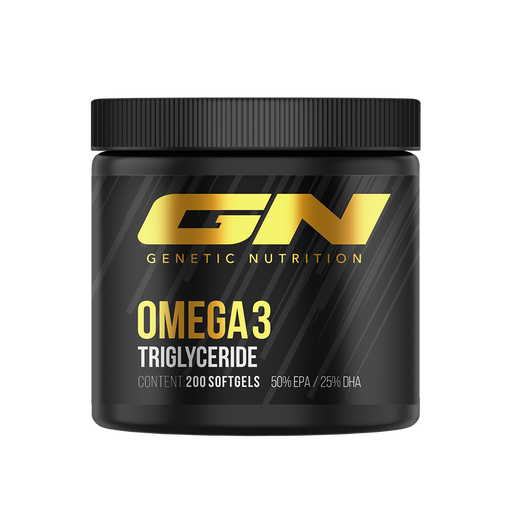 Save 11%
Save %
Original price €29,90Original price €29,90 - Original price €29,90Original price €29,90Current price €26,61€26,61 - €26,61Current price €26,61| /
Save 11%
Save %
Original price €29,90Original price €29,90 - Original price €29,90Original price €29,90Current price €26,61€26,61 - €26,61Current price €26,61| /Triglyceride Omega 3 Sport Edition · 200 softgels
GN Laboratories77 reviewsOmega-3 fatty acids are one of the supplements that are mentioned first when it comes to determining the most important dietary supplements. Once y...
View full detailsOriginal price €29,90Original price €29,90 - Original price €29,90Original price €29,90Current price €26,61€26,61 - €26,61Current price €26,61| /Save 11% Save % -
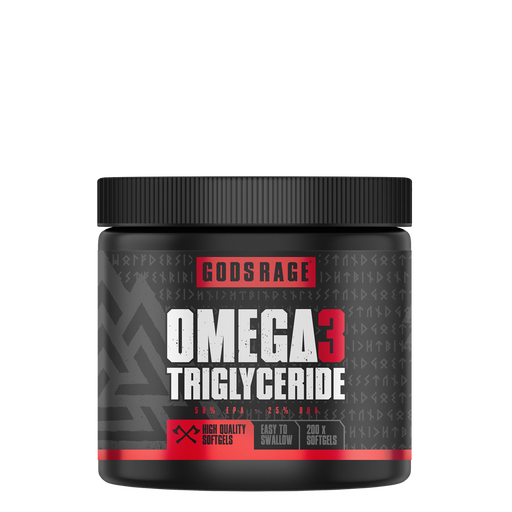 Save 17%
Save %
Original price €29,90Original price €29,90 - Original price €29,90Original price €29,90Current price €24,90€24,90 - €24,90Current price €24,90| /
Save 17%
Save %
Original price €29,90Original price €29,90 - Original price €29,90Original price €29,90Current price €24,90€24,90 - €24,90Current price €24,90| /Omega 3 Triglycerides · 200 Softgels
Gods Rage27 reviewsOmega-3 fatty acids have numerous benefits for your health. They have a positive effect on the heart, brain and eyesight, helping your body to func...
View full detailsOriginal price €29,90Original price €29,90 - Original price €29,90Original price €29,90Current price €24,90€24,90 - €24,90Current price €24,90| /Save 17% Save % -
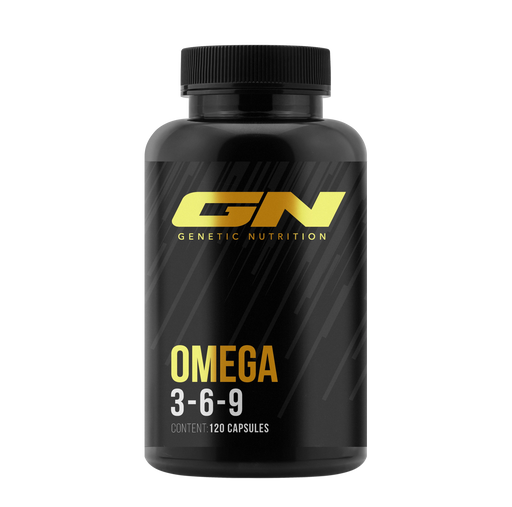 Save 11%
Save %
Original price €19,90Original price €19,90 - Original price €19,90Original price €19,90Current price €17,71€17,71 - €17,71Current price €17,71| /
Save 11%
Save %
Original price €19,90Original price €19,90 - Original price €19,90Original price €19,90Current price €17,71€17,71 - €17,71Current price €17,71| /Omega 3-6-9 · 120 capsules
GN Laboratories5 reviewsEveryone is familiar withomega-3 fatty acids as a supplement, but these are not the only fatty acids that the body needs for a whole range of impor...
View full detailsOriginal price €19,90Original price €19,90 - Original price €19,90Original price €19,90Current price €17,71€17,71 - €17,71Current price €17,71| /Save 11% Save % -
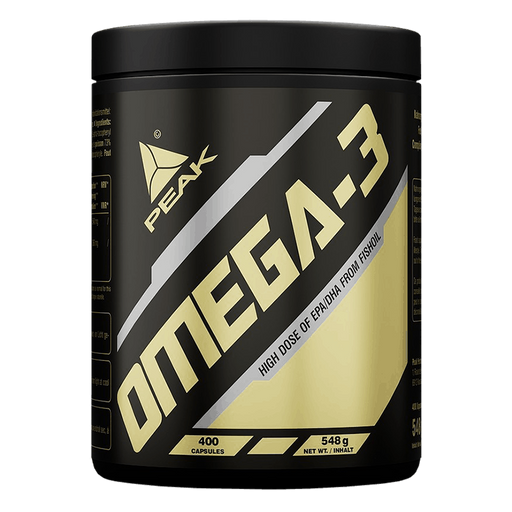 Save 11%
Save %
Original price €32,90Original price €32,90 - Original price €32,90Original price €32,90Current price €29,28€29,28 - €29,28Current price €29,28| /
Save 11%
Save %
Original price €32,90Original price €32,90 - Original price €32,90Original price €32,90Current price €29,28€29,28 - €29,28Current price €29,28| /Omega 3 · 400 capsules
PEAK3 reviewsHigh-quality (marine) fish oil in easy-to-swallow softgel capsules Uncomplicated intake of vital omega-3 fatty acids Proven effective thanks to hi...
View full detailsOriginal price €32,90Original price €32,90 - Original price €32,90Original price €32,90Current price €29,28€29,28 - €29,28Current price €29,28| /Save 11% Save % -
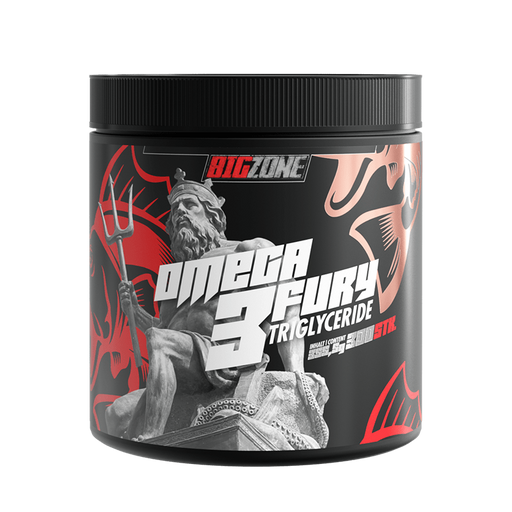 Save 11%
Save %
Original price €44,90Original price €44,90 - Original price €44,90Original price €44,90Current price €39,96€39,96 - €39,96Current price €39,96| /
Save 11%
Save %
Original price €44,90Original price €44,90 - Original price €44,90Original price €44,90Current price €39,96€39,96 - €39,96Current price €39,96| /Omega 3 Fury Triglyceride · 300 capsules
Big Zone7 reviewsfor the immune system for the production of hormones for protein synthesis for the joints against inflammation for the retina in the eye against c...
View full detailsOriginal price €44,90Original price €44,90 - Original price €44,90Original price €44,90Current price €39,96€39,96 - €39,96Current price €39,96| /Save 11% Save % -
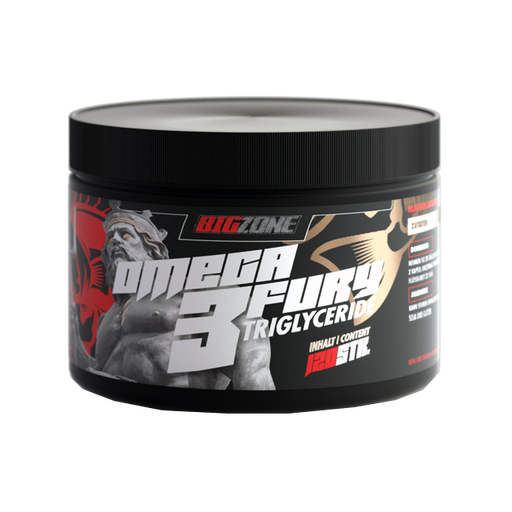 Save 11%
Save %
Original price €23,90Original price €23,90 - Original price €23,90Original price €23,90Current price €21,27€21,27 - €21,27Current price €21,27| /
Save 11%
Save %
Original price €23,90Original price €23,90 - Original price €23,90Original price €23,90Current price €21,27€21,27 - €21,27Current price €21,27| /Omega 3 Fury Triglyceride · 120 capsules
Big Zone3 reviewsBut what exactly are omega 3 fatty acids needed for? for the immune system for the production of hormones for protein synthesis for the joints aga...
View full detailsOriginal price €23,90Original price €23,90 - Original price €23,90Original price €23,90Current price €21,27€21,27 - €21,27Current price €21,27| /Save 11% Save % -
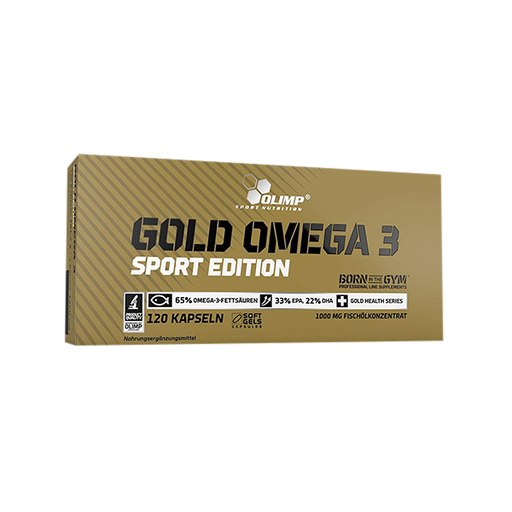 Save 11%
Save %
Original price €17,90Original price €17,90 - Original price €17,90Original price €17,90Current price €15,93€15,93 - €15,93Current price €15,93| /
Save 11%
Save %
Original price €17,90Original price €17,90 - Original price €17,90Original price €17,90Current price €15,93€15,93 - €15,93Current price €15,93| /Gold Omega 3 Sport Edition · 120 capsules
Olimp Sport Nutrition3 reviewsHigh quality food supplementOlimp Gold Omega 3 Sport Edition with essential omega-3 fatty acids. Omega-3 rich: 65% EPA and DHA from cold-water ...
View full detailsOriginal price €17,90Original price €17,90 - Original price €17,90Original price €17,90Current price €15,93€15,93 - €15,93Current price €15,93| /Save 11% Save % -
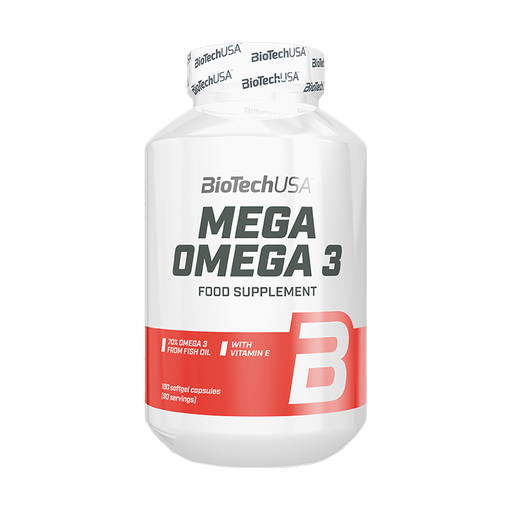 Save 11%
Save %
Original price €21,90Original price €21,90 - Original price €21,90Original price €21,90Current price €19,49€19,49 - €19,49Current price €19,49| /
Save 11%
Save %
Original price €21,90Original price €21,90 - Original price €21,90Original price €21,90Current price €19,49€19,49 - €19,49Current price €19,49| /Mega Omega 3 · 180 capsules
Biotech USANo reviews1000 mg fish oil per serving With 70% EPA and DHA omega-3 fatty acid content With added vitamin E Softgel capsule form
Original price €21,90Original price €21,90 - Original price €21,90Original price €21,90Current price €19,49€19,49 - €19,49Current price €19,49| /Save 11% Save % -
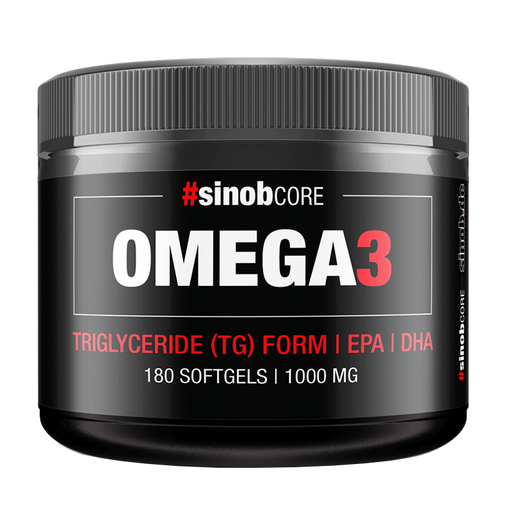 Save 11%
Save %
Original price €15,90Original price €15,90 - Original price €15,90Original price €15,90Current price €14,15€14,15 - €14,15Current price €14,15| /
Save 11%
Save %
Original price €15,90Original price €15,90 - Original price €15,90Original price €15,90Current price €14,15€14,15 - €14,15Current price €14,15| /Core Omega 3 · 180 Softgels
#sinob2 reviewsHealth of sea fishFatty sea fish such as salmon is healthy, but often contaminated with harmful substances and expensive. Omega-3 fatty acids: ...
View full detailsOriginal price €15,90Original price €15,90 - Original price €15,90Original price €15,90Current price €14,15€14,15 - €14,15Current price €14,15| /Save 11% Save % -
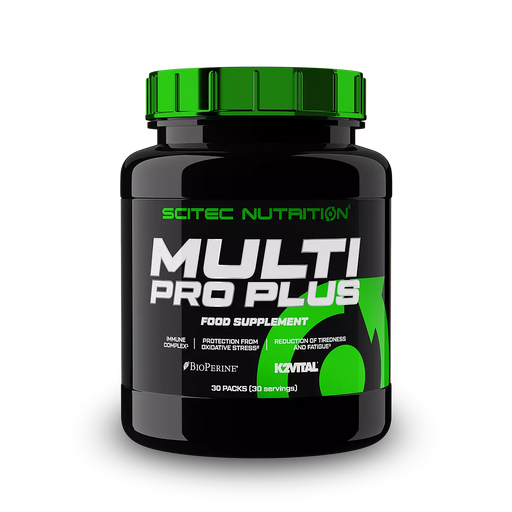 Save 11%
Save %
Original price €25,90Original price €25,90 - Original price €25,90Original price €25,90Current price €23,05€23,05 - €23,05Current price €23,05| /
Save 11%
Save %
Original price €25,90Original price €25,90 - Original price €25,90Original price €25,90Current price €23,05€23,05 - €23,05Current price €23,05| /Multi-Pro Plus · 30 Packets
SCITEC Nutrition2 reviewsMULTI PRO is a professional multivitamin & mineral formula in a package of six tablets/capsules. Vitamins and minerals are very basic nutrient...
View full detailsOriginal price €25,90Original price €25,90 - Original price €25,90Original price €25,90Current price €23,05€23,05 - €23,05Current price €23,05| /Save 11% Save % -
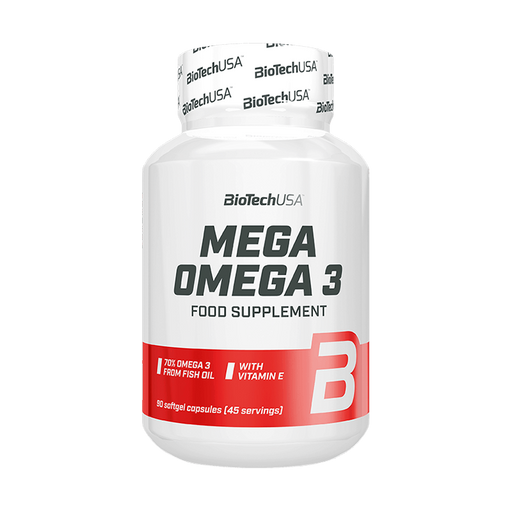 Save 11%
Save %
Original price €12,90Original price €12,90 - Original price €12,90Original price €12,90Current price €11,48€11,48 - €11,48Current price €11,48| /
Save 11%
Save %
Original price €12,90Original price €12,90 - Original price €12,90Original price €12,90Current price €11,48€11,48 - €11,48Current price €11,48| /Mega Omega 3 · 90 capsules
Biotech USA1 reviewSoftgel capsules contain omega-3 fatty acid from fish oil One serving contains 1000 mg fish oil, 400 mg EPA and 300 mg DHA EPA and DHA contribute ...
View full detailsOriginal price €12,90Original price €12,90 - Original price €12,90Original price €12,90Current price €11,48€11,48 - €11,48Current price €11,48| /Save 11% Save % -
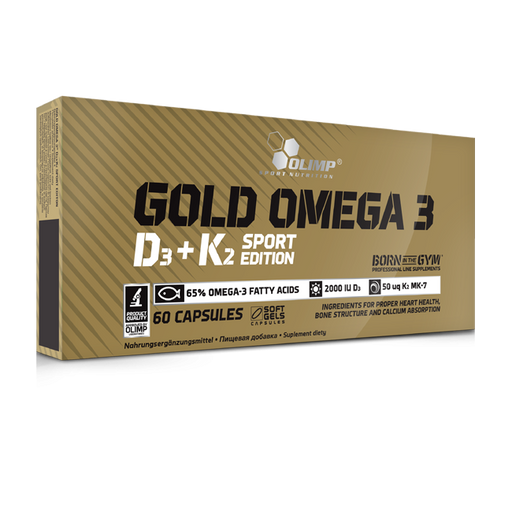 Save 11%
Save %
Original price €19,90Original price €19,90 - Original price €19,90Original price €19,90Current price €17,71€17,71 - €17,71Current price €17,71| /
Save 11%
Save %
Original price €19,90Original price €19,90 - Original price €19,90Original price €19,90Current price €17,71€17,71 - €17,71Current price €17,71| /Gold Omega 3 D3+K2 Sport Edition · 60 capsules
Olimp Sport NutritionNo reviewsproductGold Omega 3 D3+K2 Sport Edition - rich food supplement with omega-3, vitamin D3 and K2. Omega-3: Obtained from cold-water fish, support...
View full detailsOriginal price €19,90Original price €19,90 - Original price €19,90Original price €19,90Current price €17,71€17,71 - €17,71Current price €17,71| /Save 11% Save % -
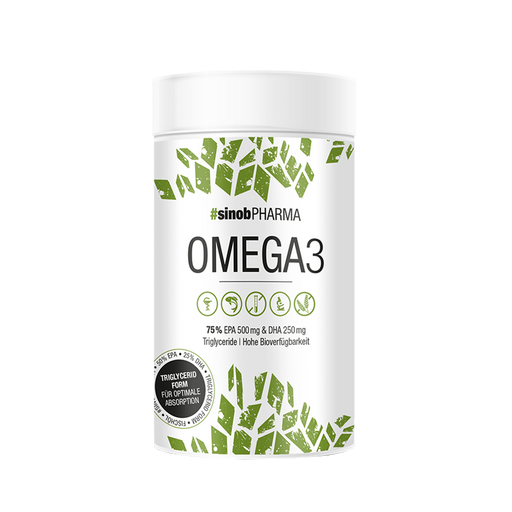 Save 11%
Save %
Original price €24,90Original price €24,90 - Original price €24,90Original price €24,90Current price €22,16€22,16 - €22,16Current price €22,16| /
Save 11%
Save %
Original price €24,90Original price €24,90 - Original price €24,90Original price €24,90Current price €22,16€22,16 - €22,16Current price €22,16| /Omega-3 MAX · 120 Liquid Caps
#sinob1 review#sinob Omega 3 capsules for health and well-being. Omega 3 in natural triglyceride form, without vitamin E. High content of 50% EPA and 25% DHA fo...
View full detailsOriginal price €24,90Original price €24,90 - Original price €24,90Original price €24,90Current price €22,16€22,16 - €22,16Current price €22,16| /Save 11% Save % -
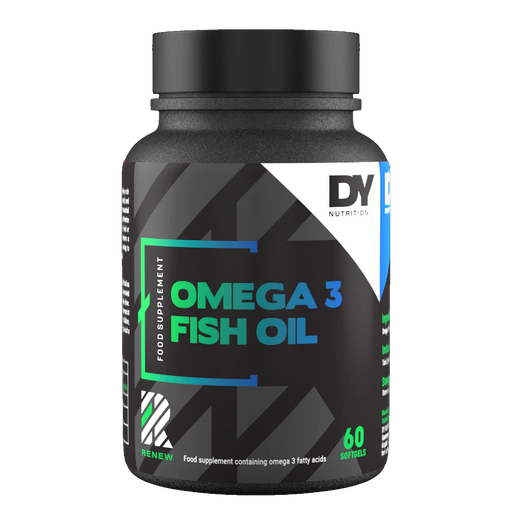 Save 11%
Save %
Original price €16,90Original price €16,90 - Original price €16,90Original price €16,90Current price €15,04€15,04 - €15,04Current price €15,04| /
Save 11%
Save %
Original price €16,90Original price €16,90 - Original price €16,90Original price €16,90Current price €15,04€15,04 - €15,04Current price €15,04| /Omega-3 Fish Oil · 60 Softgels
DY Nutrition1 reviewHigh-dose omega-3 fatty acidsProvides 330mg EPA and 220mg DHA per softgel to support brain, heart and eye health. Quality and Purity: Advanced ...
View full detailsOriginal price €16,90Original price €16,90 - Original price €16,90Original price €16,90Current price €15,04€15,04 - €15,04Current price €15,04| /Save 11% Save %
Omega-3 fatty acids support our immune system, heart function, brain function and vision, can have an anti-inflammatory effect and even protect against cancer. When choosing a supplement, you should not be misled by the amount of fish oil it contains, but rather pay attention to the proportion of EPA and DHA. High-quality products contain over 70%.
What are omega-3 fatty acids?
A distinction is made between alpha-linolenic acid, eicosapentaenoic acid (EPA) and docosahexaenoic acid (DHA). While alpha-linolenic acid can be partially converted into EPA and DHA, EPA and DHA can have a variety of positive effects in the body.
Omega-3 fatty acids contain several double bonds between the carbon atoms in their chain. One of these is located on the third carbon atom away from the methyl end of the polyunsaturated fatty acid molecule. Like alpha-linolenic acid (ALA), omega-3 fatty acids are essential or, like the highly long-chain eicosapentaenoic acid and docosahexaenoic acid (DHA), which can be produced in the body from ALA, conditionally essential.
However, the amount of EPA and DHA produced in the body is very low, so that it is not sufficient for a good supply of these two important fatty acids. ALA, EPA and DHA must be taken in regularly from the diet. ALA is contained in some vegetable oils, EPA and DHA mainly in fish oils. The average consumption of these omega-3 fatty acids is too low for many people. This is particularly true of EPA and DHA, as fish are often consumed in small quantities.
Strict vegetarians are also affected, as they hardly consume EPA and DHA or only in very small quantities. In the USA, the daily consumption of omega-3 fatty acids is around 100 to 200 grams per day. Our intake in this country should not differ too much. At least 1.5 grams a day is desirable, with an intake of around 1 gram of ALA and around 500 milligrams of EPA and DHA. If you want to take advantage of the preventive effect of omega-3 fatty acids, the intake is often set higher.
What is eicosapentaenoic acid (EPA) good for?
A sufficient supply of eicosapentaenoic acid (EPA) can contribute to a good immune system, good blood clotting, healthy blood pressure and a healthy heart rate. New studies even show that EPA can help to promote positive emotions and contribute to a reduction in anxiety and depression. EPA also has an anti-inflammatory effect in the body. EPA is partly converted into DHA in the body!
What is docosahexaenoic acid (DHA) good for?
Docosahexaenoic acid (DHA) is particularly effective in the brain and retina. A sufficient supply of DHA improves the ability to absorb information and memory performance in particular. DHA also stabilizes serotonin and dopamine levels in the brain, which can reduce susceptibility to stress and depression. Like EPA, DHA is anti-inflammatory. Other notable reasons for consuming omega-3 fatty acids include healthier blood cholesterol levels, improved bone health in old age and protection against cancer.
Foods with omega-3 fatty acids
Alpha-linolenic acid (ALA):
- Linseed oil 54200mg
- Linseed 16700mg
- Walnut oil 12900g
- Walnuts 7500g
- Chia seeds 1900mg
Docosahexaenoic acid (DHA):
- Tuna 2082mg
- Salmon 1860mg
- Herring 1170mg
- Mackerel 1138mg
Eicosapentaenoic acid (EPA):
- Tuna 1385mg
- Salmon 750mg
- Herring 740mg
- Mackerel 640mg
Daily requirement
Depending on age and activity level, between 0.5 and 1.5 grams of omega-3 should be consumed daily, as recommended by the German Nutrition Society (DGE). In our blog, you can find out what role the ratio of omega-3 to omega-6 plays.
Are omega-3 supplements useful?
Supplements are always useful if you cannot or do not want to cover your daily requirement with food. In addition, there are two decisive advantages of omega-3 supplements:
- They are easy to take, tasteless and can be dosed according to preference.
- The capsules are significantly cheaper than a qualitatively and quantitatively comparable intake from fish.
Improve the fatty acid profile
Less omega-6, more omega-3 fatty acids
It is still too little known that omega-3 fatty acids play an important role in many bodily processes. If they are regularly consumed in insufficient quantities from food, the body processes that depend on them are at the very least impaired. An unfavorable fatty acid profile can be seen, among other things, in the ratio of omega-6 to omega-3 fatty acids; the former are usually too high, the latter too low.
According to the recommendation of the German Nutrition Society, the ratio should be 5:1, but in fact it is usually 7:1 or 8:1 or higher. The reason for this is the high proportion of omega-6 fatty acids in our diet. In early Homo sapiens, the ratio of omega-6 to omega-3 fatty acids was still 1:1. Since then, eating habits have constantly changed.
The main reason for the declining proportion of omega-3 fatty acids in recent decades is the high consumption of cereal products and cooking oils, which are rich in omega-6 fats. Although omega-3 fatty acids are also found in meat, the use of cereals and concentrated feed in animal husbandry, which are rich in omega-6 fatty acids, has led to a sharp decline in their content.
Omega-3 fatty acids also compete with omega-6 fatty acids for absorption in the body; both require the same enzymes for their metabolism. If omega-6 fatty acids predominate, they win this "battle". If the intake of omega-6 fats is reduced and that of omega-3 fatty acids is increased through diet and/or supplements, the absorption of the health-important omega-3 fatty acids in the body increases.
Omega-3 fatty acids and their functions in the body
Omega-3fatty acids are important components of the cell membranes (cell walls) that surround and protect every cell. They ensure the stability and hydration of the membranes, especially in the retina and eyes. Fish oils can help prevent age-related macular degeneration and improve vision in cases of (mild) night blindness.
In the immune system, they can reduce inflammation, for example in the digestive system. They can also promote healing processes after operations and may have an anti-carcinogenic effect. In the musculoskeletal system, omega-3 fatty acids promote bone formation and muscle growth. They can probably also reduce the risk of osteoporosis. They support skin functions, relieve dry skin and can also be helpful for some skin diseases, e.g. acne or skin eczema.
Like omega-6 fatty acids, omega-3 fatty acids are important starting materials for the formation of eicosanoids. These can have both inflammatory and anti-inflammatory functions. Eicosanoids formed from omega-3 fatty acids(thromboxanes and leukotrienes) help to inhibit inflammatory processes, reduce the tendency to thrombosis and improve the flow properties of the blood.
Omega-3 fatty acids slightly lower blood pressure and improve cholesterol and triglyceride levels. They strengthen blood vessels, promote arterial health and reduce the growth of atherosclerotic plaques (vascular deposits). They normalize the heart rhythm and strengthen the health of the cardiovascular system.
Alpha-linolenic acid (ALA)
The essential medium-chain ALA (commonly abbreviated to alpha-linolenic acid) is found primarily in green leafy vegetables, linseed, wheat germ, soybeans and walnuts. The main source of ALA in our diet is edible oils, e.g. linseed, soybean, sunflower oil and margarine. Walnuts and walnut oil also contain quite a lot of ALA. The optimal daily intake is 2 to 9 grams of ALA, an amount that is often not achieved through diet.
ALA supplements can improve and ensure the intake. The requirement can be significantly higher during heavy physical exertion, e.g. competitive sport. ALA is susceptible to oxidation (rancidity), e.g. through exposure to light, oxygen and heat. This produces trans fatty acids, which can be harmful to the body if consumed in excess. ALA is a component of phospholipids and is involved in fat metabolism, but unlike EPA and DHA it cannot inhibit triglycerides.
ALA contributes above all to the health of skin, hair and nails. Like EPA and DHA, it also has heart-protective and anti-inflammatory effects, but these effects are less pronounced. Unlike EPA and DHA, ALA is not directly contained in the brain, it is only involved in brain processes via the conversion of EPA and DHA. However, the proportion of EPA and DHA obtained in this way is very low (maximum 5 to 10 percent). This is not sufficient for an adequate supply of EPA and DHA.
Eicosapentaenoic acid (EPA) and docosahexaenoic acid (DHA)
EPA and DHA (the English abbreviations are also common here) are mainly found in fatty fish, e.g. mackerel, trout, herring, salmon, sardines and tuna. Fish oils are therefore often used as a collective term for the strong long-chain omega-3 fatty acids EPA and DHA. However, they are also found in breast milk, algae and some seed oils. Fish oils are mainly used as food supplements.
They are usually distilled in order to filter out any harmful substances that may be present. Good quality fish oils always use younger and smaller fish as their source. They are less contaminated with harmful substances than the larger edible fish (e.g. salmon and tuna). Recent studies show that fish oil supplements are often even less contaminated than farmed fish. EPA and DHA are also susceptible to oxidation, so a suitable addition of vitamin E promotes the stability of fish oil supplements.
EPA and DHA protect the heart
The British biochemist Hugh Sinclair discovered the health effects of fish oils during his research trip to Greenland in the 1940s. He noticed that the indigenous people (Inuits), who mainly ate fish, hardly suffered from cardiovascular diseases. Similar findings were made with the Japanese, who also eat a lot of fish. Since then, many studies have shown that the heart-protective effects are due to the fatty acids EPA and DHA contained in fish.
Today we know that the most important ability of EPA and DHA is to reduce the risk of cardiovascular disease. EPA and DHA strengthen the heart and blood vessels, promote blood circulation and have a positive effect on cholesterol levels. They increase the "good" HDL, lower the "bad" LDL and also reduce triglycerides. The American Heart Association recommends that people who are not at risk of coronary heart disease should eat at least two fish meals a week.
Fatty fish rich in EPA and DHA should be preferred. People at increased risk of coronary heart disease should consume one gram of EPA and DHA per day, which is equivalent to one portion of oily fish per day. People who have elevated triglycerides may need 2 to 4 grams of EPA and DHA daily. Achieving such intakes through daily fish meals is not realistic and is not recommended due to a lack of variety.
Regular fish oil supplements are a simple way of meeting the increased need for omega-3 fatty acids. In the USA, a corresponding health warning is permitted for fish oil capsules. Their intake should be limited to normal amounts, up to a maximum of two grams of EPA and DHA per day. An increased daily intake (over 3 g) should only be taken on the recommendation of a therapist. Taking fish oil capsules is generally safe. Only rarely do large amounts cause diarrhea or temporary gastrointestinal complaints.
EPA and DHA have many other health effects in addition to protecting the heart. Many experts believe that their supplementation will soon become as commonplace as the intake of vitamins C and E. EPA and DHA can strengthen the immune system, reduce inflammation and lower the need for painkillers (e.g. for rheumatism). EPA and DHA are also important for the brain, they alleviate the effects of stress, increase physical performance and can help to alleviate the symptoms of depression and attention deficit disorder.
Within the nervous system, fish oils can also help prevent headaches. Sixty percent of our brain is made up of fat, of which DHA makes up 25 percent. It is already involved in the development of the brain and vision in the fetus. During pregnancy and breastfeeding - DHA is a component of breast milk - a sufficient supply of DHA is very important for mother and child. In general, DHA contributes to good brain function. Recent research shows that DHA may also play a role in the prevention of dementia and Alzheimer's disease.
Recommendations for the intake of omega-3 fatty acids
For general supply: Marine and vegetable oils from the diet, possibly supplement fish oil capsules Consume a variety of different (especially fatty) fish with at least two fish meals per week, the diet should also include oils and foods rich in ALA (e.g. flaxseed, rapeseed, soybean oil, linseed, walnuts).
Those who eat little fish can supplement EPA and DHA with fish oil capsules. In case of increased risk of heart disease and heart disease: Ensure regular intake of EPA and DHA Consume around 1 gram of EPA and DHA daily, preferably from fatty fish, EPA and DHA from fish oil capsules can supplement regular intake and be safe for high
Triglyceride levels: increase your intake of EPA and DHA Approx. 2 to 4 grams of EPA and DHA from fish oil capsules daily.
Requirements in sport
An intake of alpha-linolenic acid stimulates the metabolism and increases thermogenesis, so that it is unlikely that alpha-linolenic acid will be stored as body fat. Rather the opposite is the case, it leads to accelerated fat loss. My recommendation is a dosage of alpha-linolenic acid of 5-10g per day.














